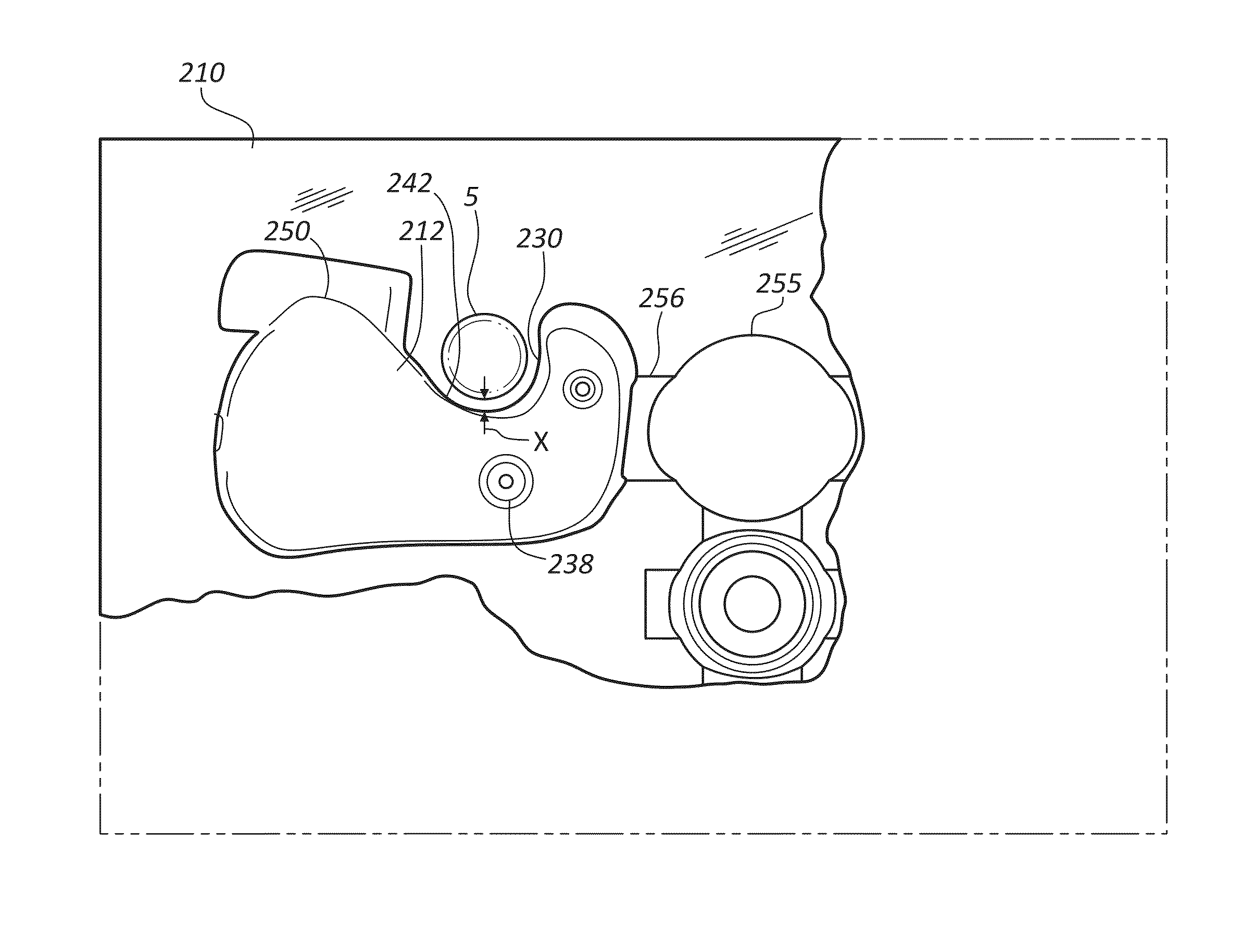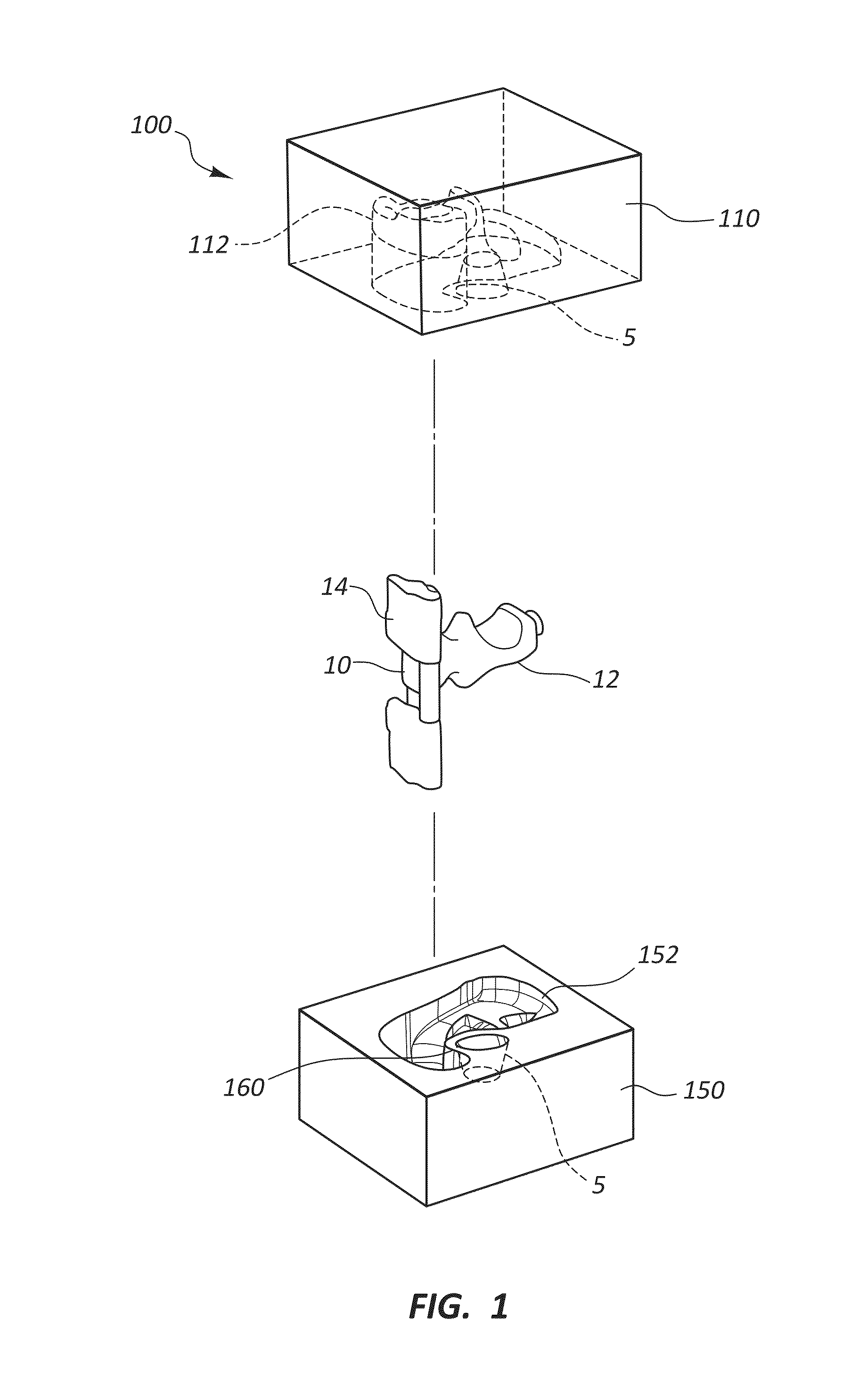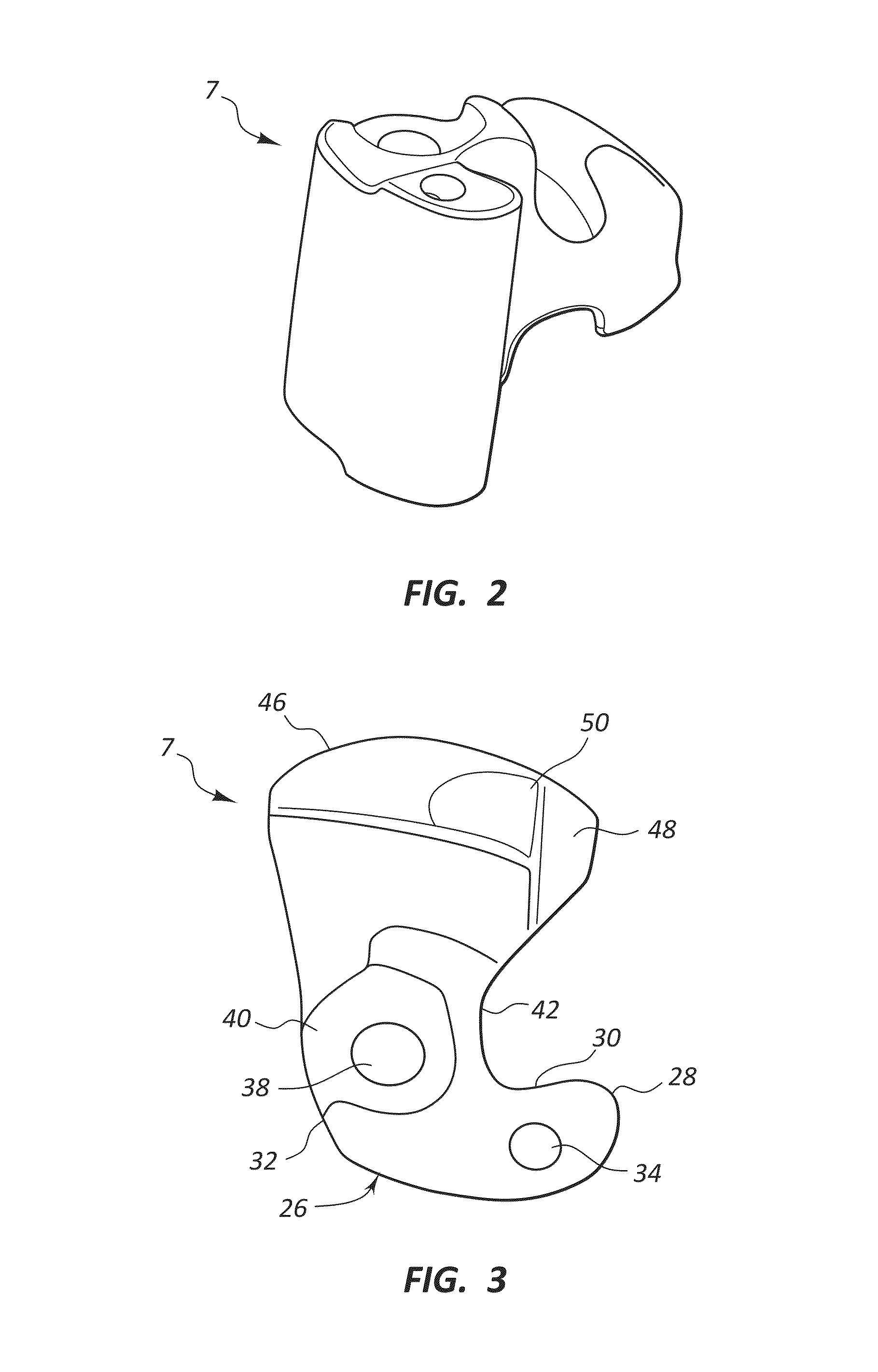Subsurface chills to improve railcar knuckle formation
a technology of railcar couplers and subsurface chills, which is applied in the direction of manufacturing tools, foundry patterns, moulding apparatus, etc., can solve the problems of increasing failure risk during use of knuckles, poor coupling/uncoupling performance of couplers, and failure of knuckles that are not uniform throughout the thickness of knuckles
- Summary
- Abstract
- Description
- Claims
- Application Information
AI Technical Summary
Benefits of technology
Problems solved by technology
Method used
Image
Examples
Embodiment Construction
[0023]In some cases, well known structures, materials, or operations are not shown or described in detail. Furthermore, the described features, structures, or characteristics may be combined in any suitable manner in one or more embodiments. It will also be readily understood that the components of the embodiments as generally described and illustrated in the Figures herein could be arranged and designed in a wide variety of different configurations.
[0024]As discussed above, one technique used to address micro-shrinkage issues is the addition of metal chills. Chills absorb and remove the heat from the poured metal in the location of the chill in order to promote (and direct) solidification and limit the amount of shrinkage in the vicinity of the small area in which they are located. These may be external chills, which may be placed along the mold walls at predetermined locations, or may be internal chills. Both external and internal chills will be discussed briefly, and then the rem...
PUM
| Property | Measurement | Unit |
|---|---|---|
| volume | aaaaa | aaaaa |
| mass | aaaaa | aaaaa |
| angle | aaaaa | aaaaa |
Abstract
Description
Claims
Application Information
 Login to View More
Login to View More - R&D
- Intellectual Property
- Life Sciences
- Materials
- Tech Scout
- Unparalleled Data Quality
- Higher Quality Content
- 60% Fewer Hallucinations
Browse by: Latest US Patents, China's latest patents, Technical Efficacy Thesaurus, Application Domain, Technology Topic, Popular Technical Reports.
© 2025 PatSnap. All rights reserved.Legal|Privacy policy|Modern Slavery Act Transparency Statement|Sitemap|About US| Contact US: help@patsnap.com



